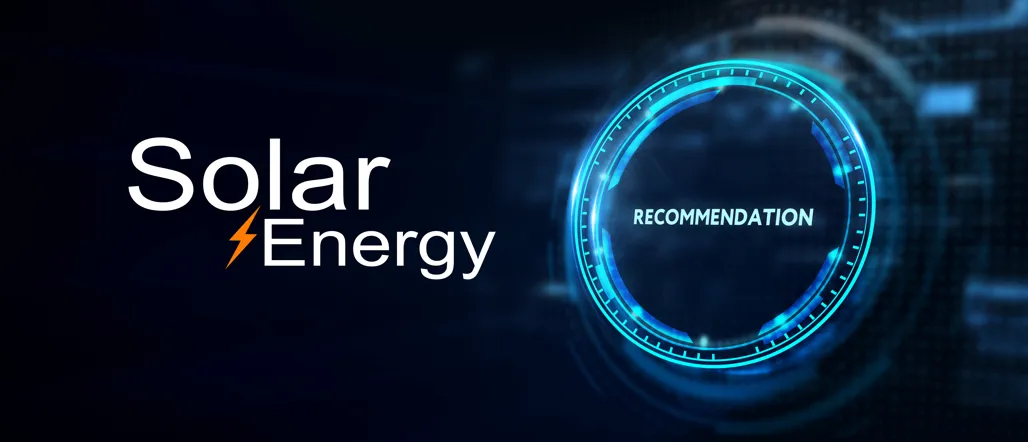
Important things to Consider Before Speaking to a Solar Energy Professional
Solar energy is one of the most important sources of clean and renewable energy available today. It is an abundant, sustainable, cost-effective energy source used today to power homes and businesses. Because fossil fuel resources are finite and increasingly scarce, energy costs are rising. Global warming is also a growing concern, and the genuine need for a reliable, cost-effective, and renewable energy source has never been greater.
Some Benefits of Solar Energy
1.Solar energy is one of the world's most abundant energy sources. It is a clean, renewable source of energy that can be used to power homes, businesses, and even entire cities.
2.The environmental benefits of solar energy are undeniable. It is a clean, renewable source of energy that can help reduce carbon emissions and help combat climate change. The benefits of solar energy extend beyond just electricity. Solar energy can reduce electricity bills and carbon footprint and help protect the environment. Even small systems, such as rooftop solar panels, can generate sufficient electricity to power your home, business, and vehicle.
3.Solar energy is also an ideal source of energy for remote areas. Solar panels can be used to provide electricity and heat to communities that do not have access to the electricity grid. People in remote areas can benefit from clean, reliable, and cost-effective energy.
4.The cost of installing solar panels has decreased significantly over the years, making it an even more attractive option. Many governments and utility companies offer incentives to encourage people to install solar panels, such as providing a rebate on the installation costs.
5.Solar energy is a reliable energy source. It is essential for everyone to consider the benefits of solar energy and to make the switch to solar power if possible.
Four (4) key points you should know when considering to start using solar energy
1. Understand your energy needs: Before investing in solar energy, it is important to understand your energy needs and how much energy you will need to power your home.
2. Research local incentives: Many states and local governments offer incentives to help offset the cost of solar energy. Researching these incentives can help you save money on your solar energy system.
3. Consider the cost of installation: Installing a solar energy system can be costly. Considering the installation, maintenance, and other associated expenses is important.
4. Understand the technology: Solar energy technology is constantly evolving. It is essential to understand the technology and how it works to make the most of your solar energy system.
Assessing Your Solar Energy Needs
Before starting solar energy, you must first assess your energy needs. This will help you determine the size and type of solar energy system you need. You should consider the electricity you use daily and any plans for increasing your energy usage. You should also consider the amount of sunlight your home or business receives daily.
Once you have assessed your energy needs, you can begin researching the available solar energy systems. Several types of solar energy systems exist, including rooftop solar panels, ground-mounted solar panels, and solar thermal systems. Each type of system has its advantages and disadvantages, so it is important to research each type before deciding.
Installing a Solar Energy System
Installing a solar energy system is a complex process that requires the help of a qualified professional. Once you have decided on the type of solar energy system you want, you can begin the installation process. The installation process typically includes the following steps:
1. Designing the system: The first step in the installation process is to design the system. This part includes determining the size and type of solar panels to be used, as well as the location of the panels.
2. Installing the panels: The panels can be installed once the design is complete. This typically involves mounting the panels on the roof or ground and wiring the panels to the electrical system.
3. Connecting the system to the grid: After the panels are installed, they must be connected to the electrical grid. This is done by connecting the system to the utility company's power lines.
4. Monitoring the system: After the system is connected to the grid, it must be monitored to ensure it works properly. This typically involves installing a monitoring system that can track the system's performance.
Maintaining Your Solar Energy System
Once your solar energy system is installed, it is essential to maintain it properly. This includes regularly cleaning the panels to ensure that they are free of dirt and debris and checking the system's performance to ensure that it is working correctly. It is also important to check the system's wiring and connections to ensure they are secure.
In summary,
Solar energy is a clean, renewable source that can power homes and businesses. In this card, we discussed solar energy and its benefits and how you can start using it, from understanding the basics of solar energy to installing a solar energy system and the importance of properly maintaining it. The next time you speak with a solar energy professional, you can know what to expect or ask about solar energy.




